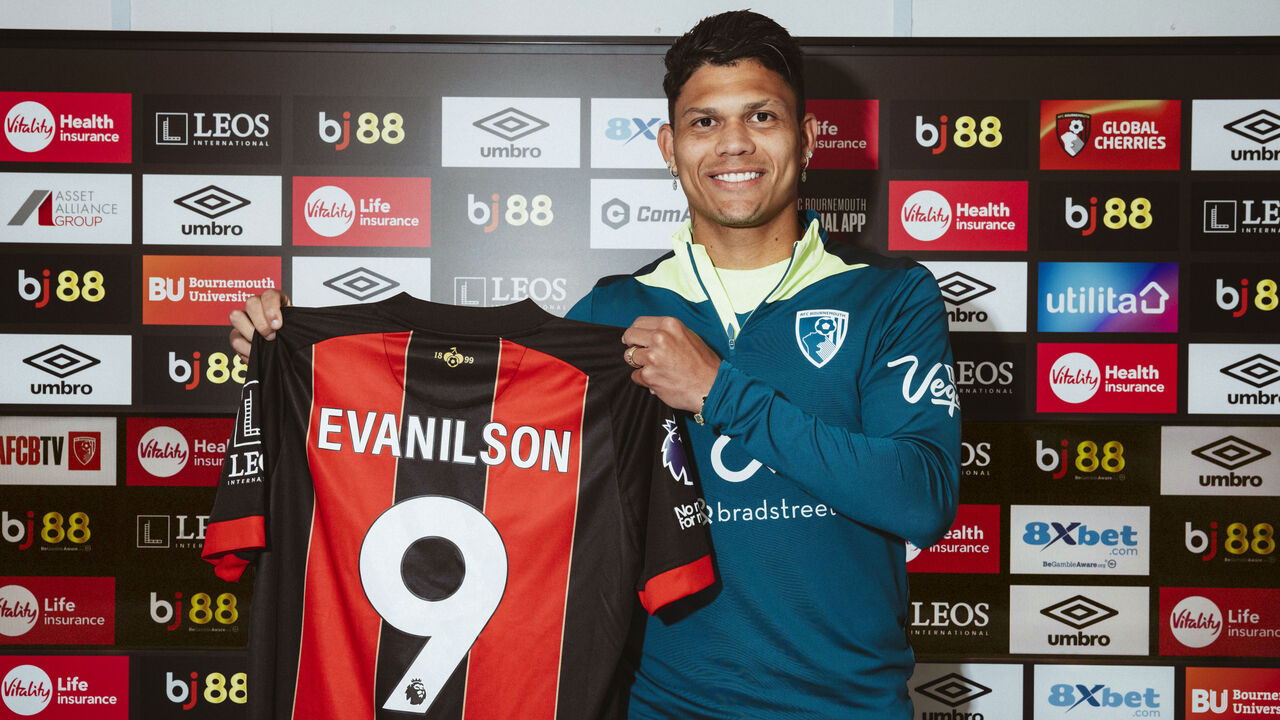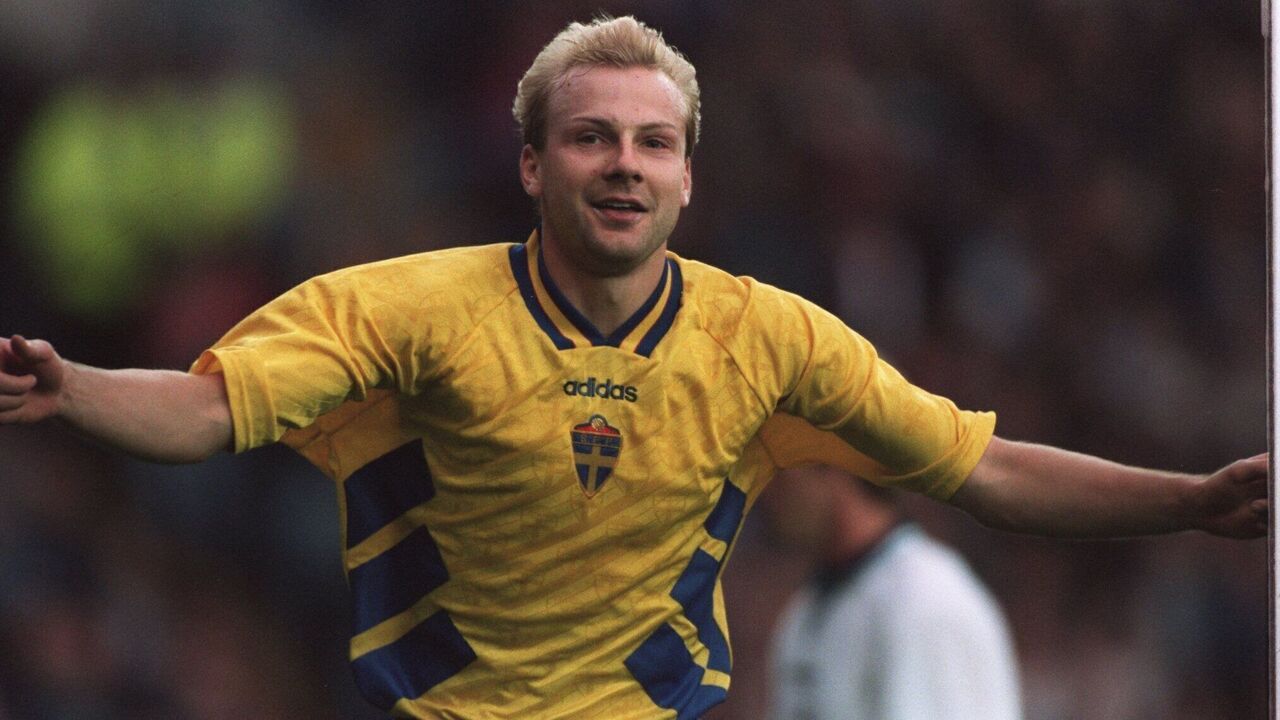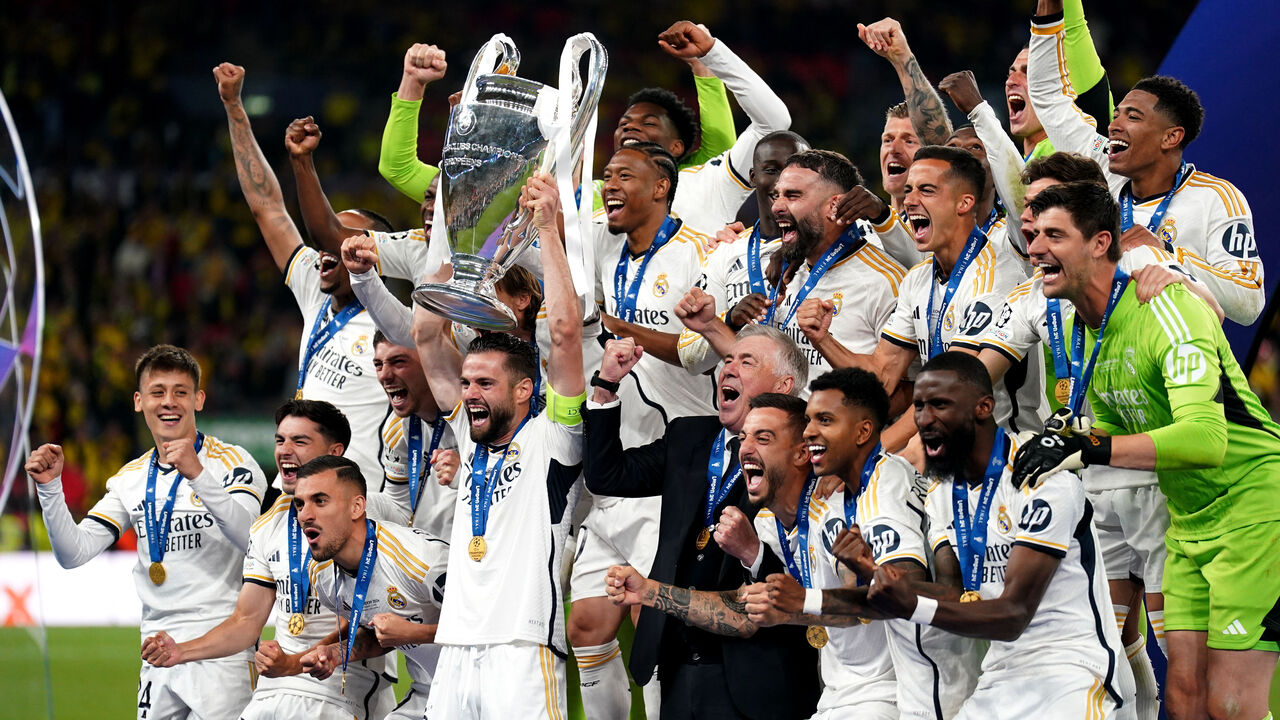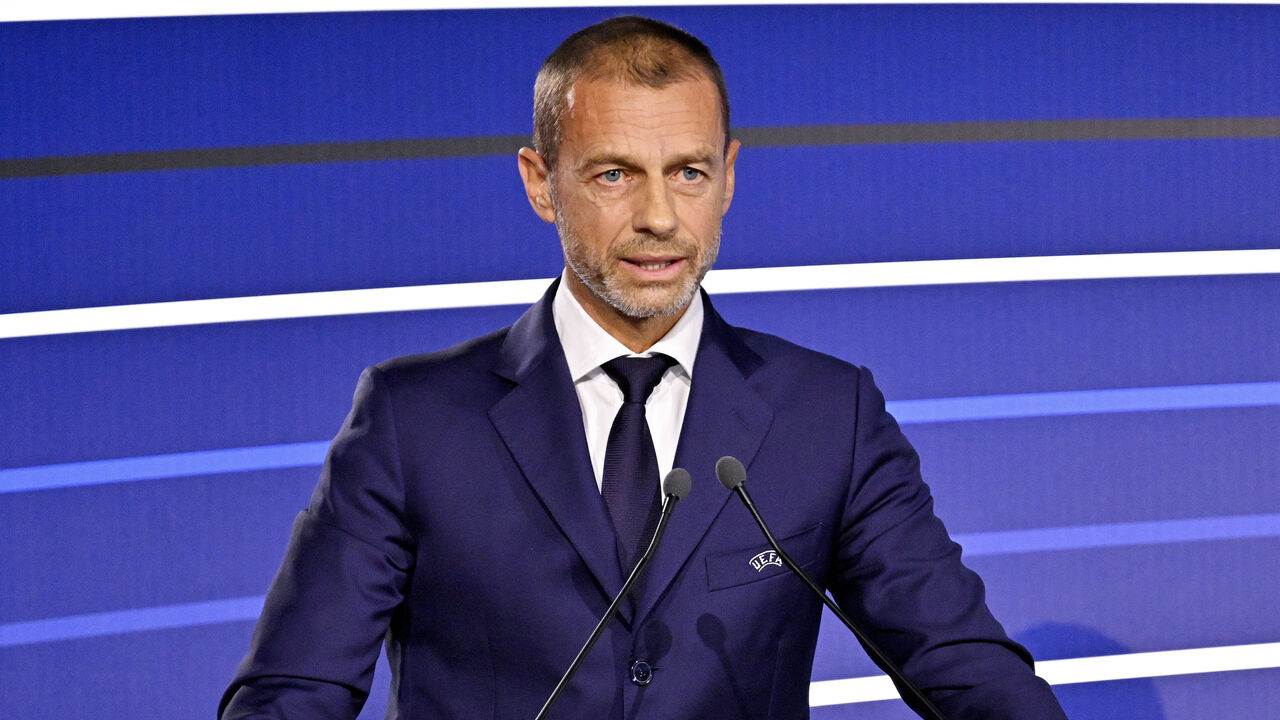Financial inequality has ruptured European soccer. Is the damage irreversible?
FC Porto won the Champions League 20 years ago. That same season, Bournemouth finished below Hartlepool United, Port Vale, and Tranmere Rovers in England's third tier.
Things have changed drastically since. The balance of power in European soccer has shifted.
When Dominic Solanke left for Tottenham Hotspur in one of this summer's priciest transfers, Bournemouth shopped for someone to fill the 21-goal hole in their strike force. Their response was decisive and, naturally, expensive. Six days after Solanke's exit, Bournemouth plucked Brazilian international Evanilson from Porto for a club-record fee that may exceed £40 million.
Bournemouth's ability to make this deal is largely a credit to the management that helped the modest club rise from the fourth division to the Premier League in just 12 years.
But it's also another clear indicator of the financial disparity between the Premier League and the rest of Europe. Porto were strong-armed by Bournemouth, a club that's spent 117 years of its 125-year history below England's top flight and has a stadium that barely holds over 11,000 spectators. That same Porto that conquered Portuguese football 30 times and Europe twice and boasted global stars like Deco, Casemiro, and Pepe had succumbed to the might of Bournemouth and sold their prized asset.
"From a European perspective, it does seem like there is an increasing gulf between the Premier League and other leagues," Christina Philippou, an associate professor in accounting and sport finance at the University of Portsmouth, told theScore.

This summer was rife with Premier League clubs overpowering traditional European powerhouses in the transfer market. Even Ipswich Town, who finished second in England's second tier last term, outspent 31 of the 36 clubs competing in this season's revamped Champions League's league phase, according to figures from Transfermarkt.
The 20 Premier League teams spent almost £2 billion in the summer, exceeding the combined transfer outlay of the 58 clubs in the Bundesliga, La Liga, and Serie A.
The boom and trickle-down effect
"It was broadcasting that kick-started the whole thing," Dan Plumley, a senior lecturer in sport finance at Sheffield Hallam University, said when explaining the Premier League's financial dominance. "Credit where credit's due from a business point of view, (former chief executive) Richard Scudamore in the first phases of the Premier League era went really, really hard on the global market."
The Premier League initially sold its broadcasting rights overseas for cheap to rapidly increase the exposure of English football and, over time, allow its popularity to soar. Plumley said the Premier League has enjoyed "continual growth" since around the mid-2000s. It boasts soccer's highest broadcasting income at $3.8 billion this year, according to Statista research. Second-placed La Liga pulls in almost half of that at $2 billion, while only the NFL beats the Premier League across all sports with its huge annual total of $10 billion.
Unlike the rest of Europe, Premier League clubs can thrive financially without income from the Champions League, Europa League, or Conference League.
Average revenue per club in 2022-23
| League | Figure |
|---|---|
| Premier League | €348M |
| Bundesliga | €213M |
| La Liga | €177M |
| Serie A | €143M |
| Ligue 1 | €119M |
(Courtesy: Deloitte)
Plumley is keen to point out that the Premier League's outreach benefits other countries. It's putting soccer on screens in all corners of the globe, from Macau to Mexico, the Pacific Islands to Portugal, and Sub-Saharan Africa to Serbia. The league is building a stronger appetite for the sport, sometimes in places where it may not have previously existed.
"(The clubs) are kind of joint economic partners," Plumley said.
"You don't really get that in a lot of other businesses because they're all trying to outdo each other: a retail business is going to benefit if another retail business goes out of business. That doesn't ring true in football."
Hakan Mild, a director at IFK Goteborg and former midfielder with over 70 Sweden caps, has seen how the big leagues have directly influenced and improved smaller ones. He said there are now more "working opportunities" for players and coaches at the larger clubs and clearer coaching advancements than when he rose through the ranks as a teenager.
Of course, it also helps when a Premier League outfit swoops in for a talented player. Malick Yalcouye switched Goteborg for Brighton in the summer in a club-record sale that Mild said surpassed the €7-million mark.
"We can use that money to develop the club," Mild told theScore. "(We can help) our young players, the boys and girls, to become better footballers because we have the possibility to put money in our facilities."

You can draw similarities between two-time UEFA Cup winners Goteborg selling to Brighton and Porto surrendering to Bournemouth's financial clout. However, English football's strength over Sweden is nothing new. The Swedish game only made significant steps toward professionalism in the 1960s and 1970s. English football has long represented a significant leap forward from Sweden, demonstrated by an influx of Swedes from the 1990s.
'Sacrifice everything to the gods'
Mild is optimistic about the future of leagues below the Premier League while he sees improvement among the smaller clubs. The Europa League and Conference League - the latter began in 2021 - can help lift the standard with more competitive games and greater financial windfalls.
But there's still been just one Swedish team in the Champions League group stage or league phase over the past nine years (Malmo in 2021-22). Bodo/Glimt - on course to collect their fourth Norwegian title in five years - won five of their six 2024-25 Champions League qualification matches but didn't make UEFA's flagship competition, dropping into the second-tier Europa League instead. Dominant Danish club Copenhagen had no Champions League football for five years before earning impressive draws with Manchester City, Borussia Dortmund, and Sevilla in last season's group stage.
Mild said Swedish clubs "have to fight" rather than complain about how the Champions League format grants automatic qualification to teams that finish as low as fifth in the Bundesliga and Serie A. Still, it often appears to be a closed shop to nations below Europe's top five leagues.
UEFA's five leading leagues take up 22 of the 36 places in the Champions League's revamped league phase, with just one (Lille) needing to navigate qualifiers to reach that stage. Only 16 of UEFA's 55 national association members are represented. It's an environment where broadcasting income, prize money, European matchday revenue, and the increase in commercial interest that continental football brings are enjoyed by only a privileged minority - and regularly the same elite few each season.

Philippou, who supports Greek club Panathinaikos, feels the frustration of trying to reach the Champions League.
"You have to sacrifice everything to the gods in order to go through the myriads of qualification stages before a team from one of the - quote, unquote - lesser leagues gets in," she said. "It's kind of lost its luster in many ways from the viewpoint of the lesser leagues."
The gap below the Premier League is one of many financial disparities that pockmark the whole continent and create an uneven playing field. In 2023, Sweden's total revenue (€210 million) was around 10% of that pulled in by Europe's fifth-biggest soccer revenue generator, France, according to UEFA figures. Sweden's TV revenue income of €35 million was paltry compared to the €178-million haul brought in by Europe's seventh-largest earner, Portugal.
Despite Mild's determination to focus on Goteborg's issues, the chances of the club consistently competing with and beating some of Europe's best, like in its 1980s and 1990s heyday, are incredibly slim.
UEFA powerless
The solution to address the financial and competitive imbalance seems simple. First, Philippou said there should be a better way to distribute money throughout Europe, ensuring the top clubs don't snag most of it for themselves. That could be followed by UEFA revising its competitions.
"(Give) smaller leagues better chances of getting in and competing," Philippou suggested. "That way, you could boost your audiences and help develop football across the continent, as opposed to just focusing on the larger leagues, which is effectively what we're seeing football move toward."
Improving the chances of smaller clubs participating in the best competitions is within UEFA's remit, but what motivation does it have? The long-term benefits could be huge, with clubs from lesser leagues bringing money into their domestic game and UEFA competitions becoming enriched with more cultures and a greater variety of teams. But the short-term benefits of well-known clubs attracting bigger audiences and, as a result, larger revenues are irresistible.
And outside of that, there's little UEFA can do to bring more parity.
"They can't in many ways because the leagues are self-governed," Plumley told theScore. "They are the governing body of European football, and they have a role to play in the member associations, but they can't tell the Premier League, as an example, how to split their broadcasting money."

UEFA and domestic leagues have tried to control the finances of its teams, but Financial Fair Play (FFP), profitability and sustainability rules (PSR), and squad cost ratios are limited. The latter is UEFA's latest initiative, dictating that clubs competing in Europe can't spend 80% or more of their revenue on transfers, wages, and agent fees. Next season, it tightens to 70%.
The ratio effectively ensures that clubs don't spend beyond their means but preserves the competitive imbalance. Teams churning out the highest revenues can continue to outspend the rest, making it harder for everyone else to catch up.
Individual leagues' efforts to control finances are also limited. La Liga calculates a spending cap for transfers and wages for its clubs based on various factors, including past revenues and projected income. While this can help remedy financial mismanagement at Barcelona, for example, it leaves their European rivals to potentially gain a competitive edge with larger, less contained squad upgrades.
Plumley said he thinks the chasms in the European game will remain for at least 5-10 years - and it would take something drastic for them not to continue much longer than that.
"The only thing that really shakes it up is a new governance structure within leagues or across the ecosystem that really changes what's there and almost rips it up and starts again," Plumley added. "And I just don't think we're in that space."
HEADLINES
- Super sub Jota salvages draw for Liverpool in retro clash with Forest
- EPL roundup: Man City blow 2-0 lead to Brentford, Chelsea held by Bournemouth
- Arsenal 'actively looking' at transfers with Jesus likely out for season
- Aston Villa sign Dutch forward Malen from Dortmund
- Latest news and rumors from the January transfer window